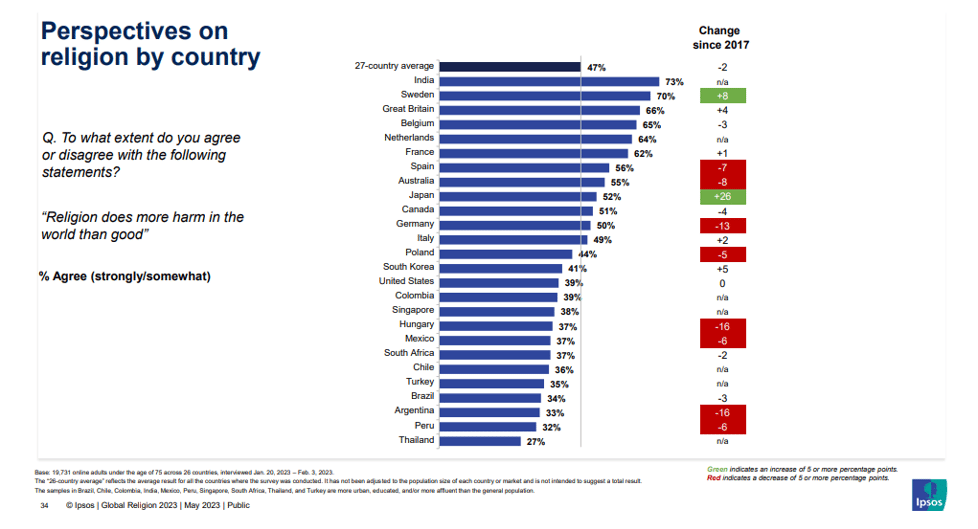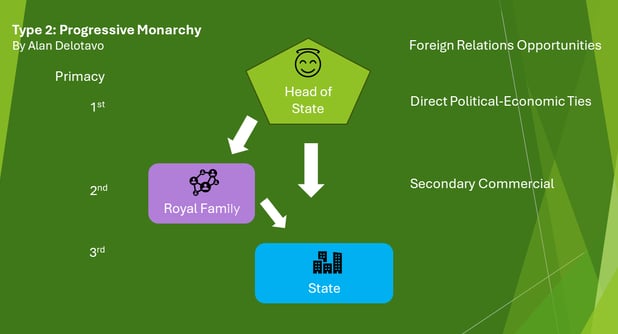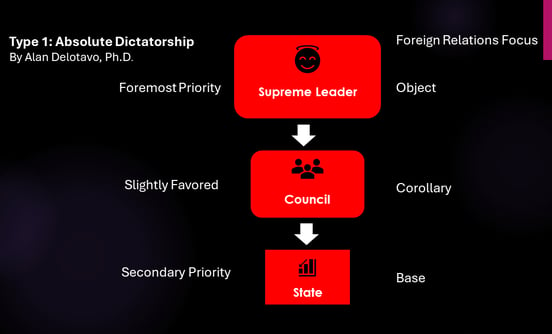Religiosity


Religiosity in global affairs encompasses the extent of national involvement, commitment, devotion, or adherence to religious beliefs, practices, values, and ideologies propagated by either mainline traditions or new theological constructs. It's essential to understand that theology doesn't emerge in a vacuum; rather, it responds to national societal circumstances before expanding to international issues. The degree of religious acceptance by a government is determined by the strength and influence of its adherents, the applicability of the theology to contemporary global challenges, and the advocacy of its national leadership. Adopting a particular theology as the basis for governance can lead a country to shift from a moderate to a radical perspective, often under the influence of its religious and political leaders.
However, there is a big difference between hereditary religious monarchies and governments that have changed from secular to religious or from one religion to another. In contemporary times, religious monarchies are more likely to be stable and progressive than states that have transitioned from one religious tradition to another or from secular to religious governance.
Religion has a complex and multidimensional role in world affairs, influencing social, political, economic, and cultural processes on a national and worldwide scale. It is critical to comprehend and interact with these dynamics in order to address global issues and promote collaboration, justice, and peace in the modern world.
Opportunities of Religious States
Cultural Identity and Unity: A religious state can unify its people, fostering cultural identity and solidarity, which in turn can lead to a more consistent foreign policy, promoting stability against external pressures.
Diplomatic Networks: Religious states often maintain robust diplomatic ties within their global religious communities. These networks facilitate cooperation and understanding among nations of shared faith, enhancing bilateral relations and collaboration on mutual objectives."
Soft Power and Influence: Religion historically wields soft power, shaping beliefs, values, and behaviors across borders. States with strong religious identities leverage their institutions, heritage, and traditions to influence global discourse and perceptions.
Social Stability: Religion offers stability during crises by providing comfort, guidance, and a sense of order. In religious states, religious institutions often play a central role in providing support and stability during difficult times.
Humanitarian Initiatives: Religious states prioritize humanitarian aid and development assistance guided by principles like compassion, charity, and solidarity. They play a leading role in global humanitarian efforts, responding to crises and promoting human dignity regardless of religious affiliation.


Challenges of Religious States
Religious Intolerance: A religious state may prioritize its own religious beliefs over others in its foreign relations, potentially resulting in discrimination or persecution of individuals or groups of different faiths. This could damage diplomatic relations with countries that prioritize religious freedom and tolerance.
Undermining Diplomacy: A religious state may prioritize religious ideologies over pragmatic diplomatic solutions, making it difficult to engage in constructive dialogue or negotiations with other countries. This could lead to isolation or marginalization in the international community and hinder the resolution of conflicts or disputes.
Support for Extremism: A religious state may support or fund extremist groups abroad that share its religious ideology, leading to destabilization in the region and posing a threat to global security. This could result in increased terrorism, insurgency, or radicalization, further complicating foreign relations and cooperation efforts with other nations.
Conflict and Instability: Religious states may engage in conflicts with other nations or groups based on religious differences or perceived threats to their religious ideology. This can escalate regional tensions and contribute to broader geopolitical instability.
Human Rights Violations: A religious state may prioritize religious laws or customs over international human rights standards in its foreign relations, leading to violations of individual freedoms such as freedom of speech, expression, or assembly. This could result in condemnation from the international community and economic sanctions.
Types of Religious Governance and Their Implications to Foreign Relations




